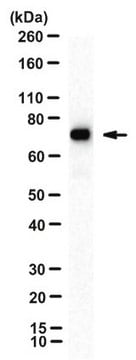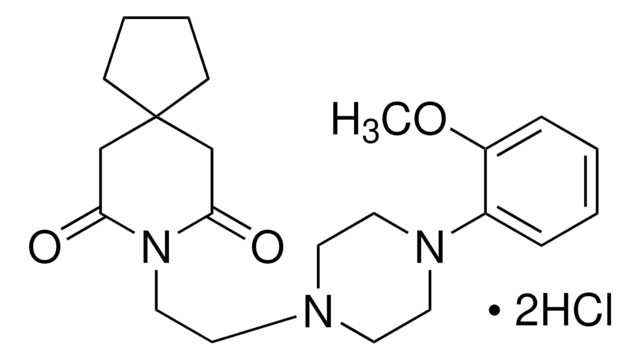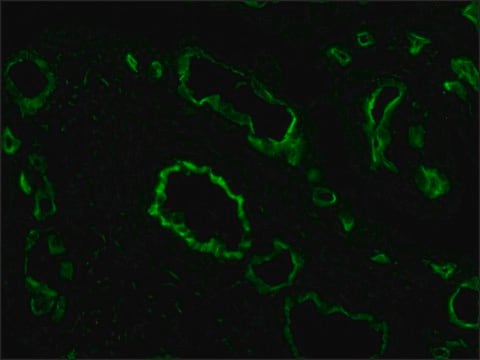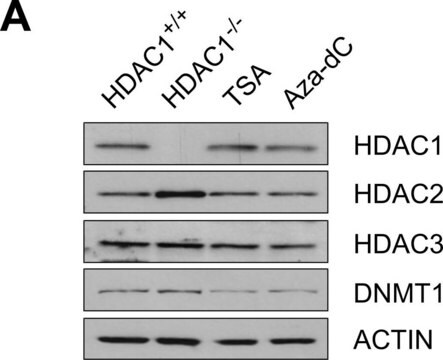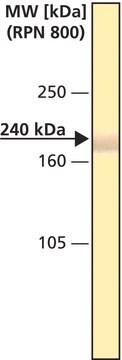ABC451
Anti-Dihydropyrimidine dehydrogenase/DPYD Antibody
from rabbit, purified by affinity chromatography
Sinonimo/i:
Dihydropyrimidine dehydrogenase [NADP(+)], DHPDHase, DPD, Dihydrothymine dehydrogenase, Dihydrouracil dehydrogenase, DPYD
About This Item
Prodotti consigliati
Origine biologica
rabbit
Livello qualitativo
Forma dell’anticorpo
affinity isolated antibody
Tipo di anticorpo
primary antibodies
Clone
polyclonal
Purificato mediante
affinity chromatography
Reattività contro le specie
human
Reattività contro le specie (prevista in base all’omologia)
bovine (based on 100% sequence homology), primate (based on 100% sequence homology), horse (based on 100% sequence homology), porcine (based on 100% sequence homology)
tecniche
immunohistochemistry: suitable
western blot: suitable
N° accesso NCBI
N° accesso UniProt
Condizioni di spedizione
wet ice
modifica post-traduzionali bersaglio
unmodified
Informazioni sul gene
human ... DPYD(1806)
Descrizione generale
Immunogeno
Applicazioni
Apoptosis & Cancer
Apoptosis - Additional
Immunohistochemistry Analysis: A 1:50 dilution from a representative lot detected Dihydropyrimidine dehydrogenase/DPYD in human liver tissue.
Qualità
Western Blotting Analysis: 2.0 µg/mL of this antibody detected Dihydropyrimidine dehydrogenase/DPYD in 10 µg of human small intestine tissue lysate.
Descrizione del bersaglio
Stato fisico
Stoccaggio e stabilità
Altre note
Esclusione di responsabilità
Non trovi il prodotto giusto?
Prova il nostro Motore di ricerca dei prodotti.
Codice della classe di stoccaggio
12 - Non Combustible Liquids
Classe di pericolosità dell'acqua (WGK)
WGK 1
Punto d’infiammabilità (°F)
Not applicable
Punto d’infiammabilità (°C)
Not applicable
Certificati d'analisi (COA)
Cerca il Certificati d'analisi (COA) digitando il numero di lotto/batch corrispondente. I numeri di lotto o di batch sono stampati sull'etichetta dei prodotti dopo la parola ‘Lotto’ o ‘Batch’.
Possiedi già questo prodotto?
I documenti relativi ai prodotti acquistati recentemente sono disponibili nell’Archivio dei documenti.
Il team dei nostri ricercatori vanta grande esperienza in tutte le aree della ricerca quali Life Science, scienza dei materiali, sintesi chimica, cromatografia, discipline analitiche, ecc..
Contatta l'Assistenza Tecnica.